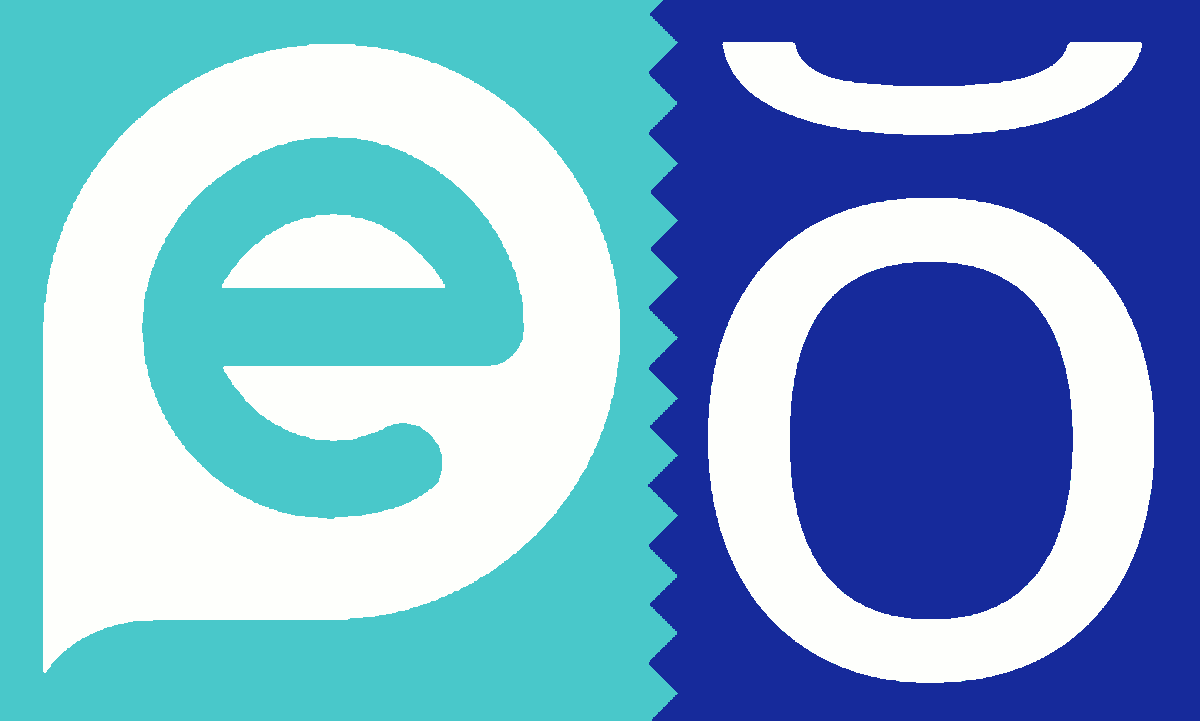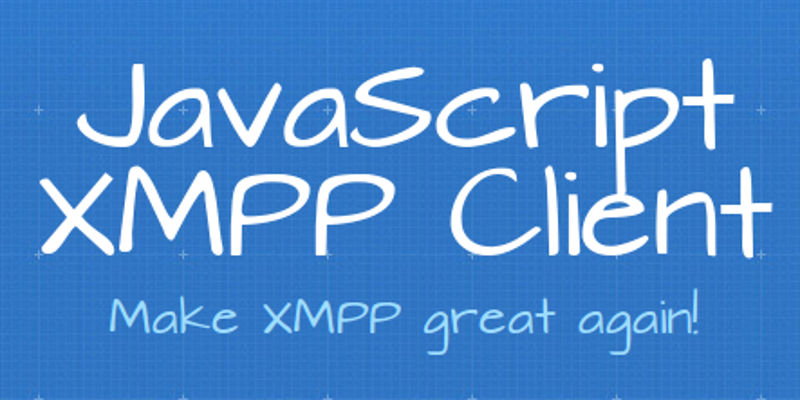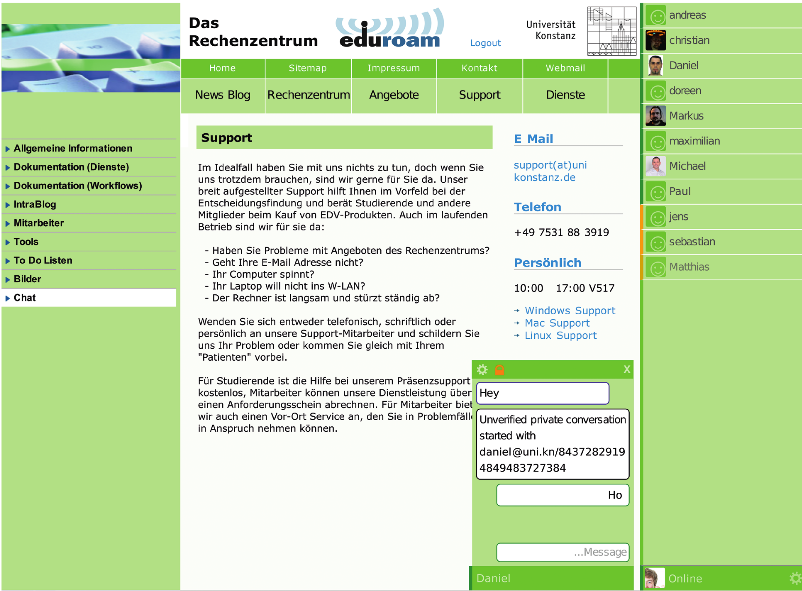-
The dangers of free cloud-based storage
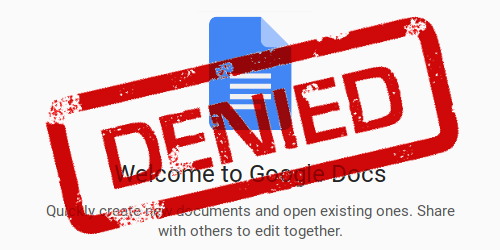
A few days ago, Google Docs locked out many users from their documents, claiming they violated their Terms of Service, despite being innocuous. Here is why this will continue to happen what you can do to not run into this problem yourself.
-
Modern ejabberd configuration

ejabberd is one of the most widely used XMPP servers. It is easy to get it running for text-based messaging with a few configuration changes. However, to obtain a smoothly running modern feature set is harder. The configuration documentation is detailed, but even for a seasoned systems administrator or XMPP guru, a lot of questions…
-
XMPP: Chat with a Future

XMPP is the Extensible Messaging and Presence Protocol standardized by the IETF. This standard provides the framework for doing anything you want to do with chat, and more. Why is XMPP (formerly known as Jabber) not the mainstream chat protocol? Actually it is. It is the most secure messaging standard: battle-tested, independent, and privacy-focused. And…
-
Interoperable Chat in Your Web Browser: JSXC 3.0 released
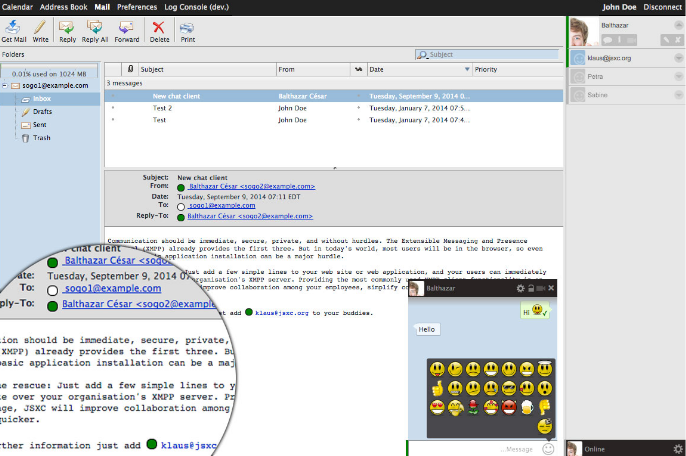
Open, standards-compliant and interoperable chat sounds like a boon. However, proprietary and closed systems (WhatsApp, Facebook chat, Google Hangouts, …) are often easier to deploy, as they are nicely integrated in existing ecosystems. The freshly-released JSXC 3.0 shows that this is not necessary.
-
JSXC: Adding Encrypted Chat with 3 Lines of Code

-
Chat in Forschung und Lehre? Sicher!


